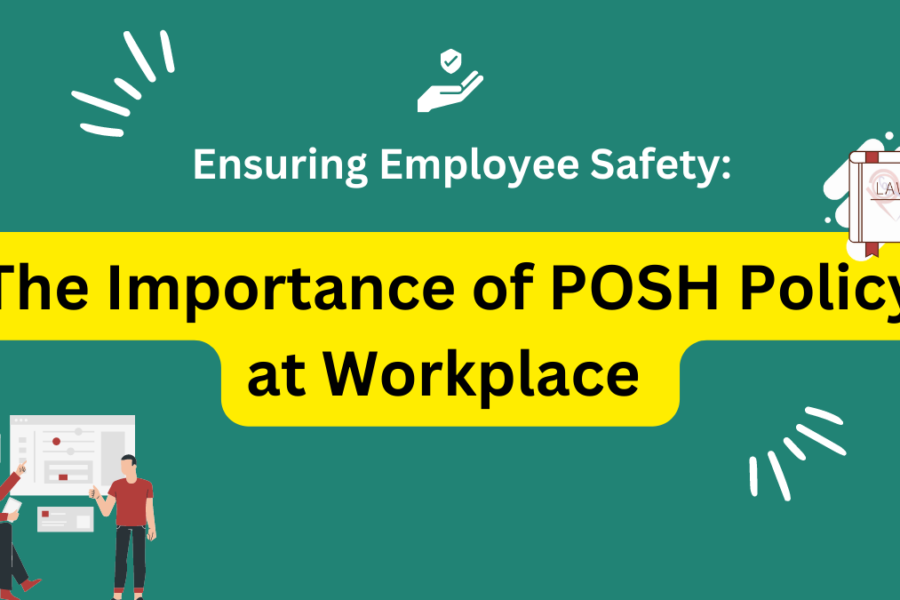Introduction
Workplace safety has always been a cornerstone of ethical employment practices, ensuring that employees can work in an environment free from physical, emotional, and psychological harm. One of the critical aspects of workplace safety is the prevention of sexual harassment, an issue that has historically been under-addressed in many sectors. In India, the enactment of the Prevention of Sexual Harassment (POSH) Act in 2013 marked a significant milestone in protecting employees, particularly women, from sexual harassment at the workplace. This article explores the evolution of workplace safety with a focus on the POSH Act, its historical context, key provisions, and its impact on organizational culture.
Historical Context
The roots of the POSH Act can be traced back to the landmark judgment by the Supreme Court of India in the Vishaka vs. State of Rajasthan case in 1997. The case involved the brutal gang rape of Bhanwari Devi, a social worker in Rajasthan, who was attacked for attempting to stop a child marriage. The Supreme Court, in its judgment, recognized the need for legislation to protect women from sexual harassment at the workplace and laid down guidelines known as the Vishaka Guidelines. These guidelines served as the foundation for the POSH Act, emphasizing the need for preventive measures, redressal mechanisms, and the accountability of employers.
Key Provisions of the POSH Act
The POSH Act, formally known as the Sexual Harassment of Women at Workplace (Prevention, Prohibition, and Redressal) Act, 2013, aims to provide a safe and secure working environment for women. Some of its key provisions include:
1. Definition of Sexual Harassment: The Act defines sexual harassment in a comprehensive manner, including unwelcome acts such as physical contact, demands for sexual favors, sexually colored remarks, showing pornography, and any other unwelcome physical, verbal, or non-verbal conduct of a sexual nature.
2. Internal Complaints Committee (ICC): Every organization with ten or more employees is required to constitute an ICC to address complaints of sexual harassment. The committee must be headed by a senior woman employee and include external members to ensure impartiality.3. Complaint Mechanism: The Act provides a detailed procedure for filing complaints, conducting inquiries, and delivering justice. It mandates a time-bound process to ensure swift redressal.
4. Employer’s Responsibilities: Employers are required to take preventive measures, such as displaying information about the POSH Act, organizing awareness programs, and ensuring a safe working environment.
5. Penalties for Non-Compliance: The Act prescribes penalties for employers who fail to comply with its provisions, including fines and potential cancellation of business licenses.
Challenges and Implementation
While the POSH Act has been a significant step forward, its implementation has faced several challenges. Many organizations struggle with awareness and sensitization, leading to underreporting of incidents. The effectiveness of the ICCs varies, with some committees lacking the necessary training and independence. Additionally, the balance between maintaining confidentiality and ensuring transparency in the complaint process remains a complex issue.
Impact on Organizational Culture
Despite these challenges, the POSH Act has made notable contributions to improving workplace safety. Organizations are increasingly recognizing the importance of creating a safe and respectful work environment. The Act has led to a cultural shift, with more employees coming forward to report incidents of sexual harassment. Awareness programs and training sessions have become more common, helping to sensitize employees and foster a culture of respect and dignity.
Conclusion
The POSH Act represents a significant evolution in the journey towards workplace safety in India. It has provided a robust legal framework to address sexual harassment, ensuring that women can work in an environment free from fear and discrimination. While challenges in implementation persist, the Act has undeniably contributed to creating safer workplaces and promoting gender equality. As organizations continue to embrace the principles of the POSH Act, the vision of a truly safe and inclusive workplace is gradually becoming a reality.
Contributed by – Pratyush Singh(Intern)

